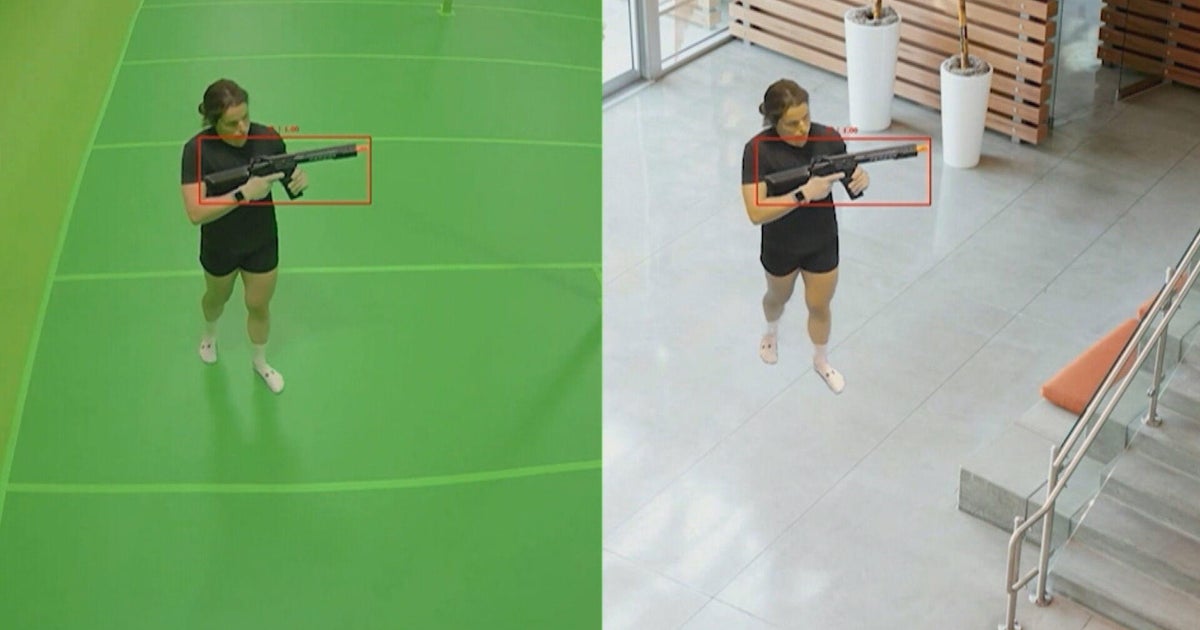CBS News
As Biden nears Trump’s number of judicial confirmations, Republicans look to slow the process

Washington — As Senate Democrats work to push through President Biden’s remaining nominees to the nation’s courts before he leaves office and control of the upper chamber flips, they are bumping up against efforts by their Republican colleagues to slow down the pace of confirmations, amid President-elect Donald Trump’s urging that his party “hold the line.”
Mr. Biden and Trump have made judicial nominations a priority in their respective terms in office, as courts become the arbiters of politically charged disputes over issues that affect all corners of American life.
During his first term in office, the Senate confirmed 234 of Trump’s judicial nominees to the Article III courts, which include the Supreme Court, federal appeals courts, district courts and U.S. Court of International Trade. But Mr. Biden is fast approaching that number for his four years in office, with the Senate approving 217 of his candidates for the federal bench so far. There are 44 current vacancies, and 14 nominees awaiting action by the upper chamber, according to the Judicial Conference.
Democrats are hoping to meet or surpass Trump’s 234 judicial confirmations during the lame-duck session, but have encountered resistance from Republicans — who, egged on by Trump — looking to hold up and drag out the process.
When the Senate convened for votes Monday, Republicans used procedural maneuvers to drag out the floor proceedings, slowing Democrats’ efforts to confirm Mr. Biden’s judicial picks. The plan to slow down the confirmations was orchestrated by Sen. John Thune of South Dakota, who was elected last week to serve as the next GOP leader, according to Fox News.
“If Sen. Schumer thought Senate Republicans would just roll over and allow him to quickly confirm multiple Biden-appointed judges to lifetime jobs in the final weeks of the Democrat majority, he thought wrong,” Thune said in a statement.
Trump is also pushing Senate Republicans to thwart Democrats’ efforts to continue approving Mr. Biden’s judicial picks.
“The Democrats are trying to stack the courts with radical left judges on their way out the door,” he wrote on social media. “Republican senators need to show up and hold the line — no more judges confirmed before inauguration day!”
But Democrats are not breaking new ground by confirming Mr. Biden’s judicial nominees during the lame-duck session. In 2020, after Trump lost his bid for reelection, the GOP-led Senate confirmed 19 candidates to the federal bench, including one judge to the U.S. Court of Appeals for the 7th Circuit and four to the U.S. Court of Federal Claims.
Among those who won approval in the weeks after the 2020 election was U.S. District Judge Kathryn Mizelle, who at 33 years old was the youngest of Trump’s nominees and was deemed “not qualified” to serve on the district court by the American Bar Association. U.S. District Judge Aileen Cannon, who tossed out the criminal case against Trump for his alleged mishandling of sensitive documents, was also confirmed by the Senate after the 2020 election.
“Delaying the confirmation of highly qualified, experienced judges takes a real-life toll on constituents and leads to backlogs of criminal cases – meaning Senator Thune was correct in 2020 when he said senators have every urgent reason to continue working together in good faith to staff the federal bench,” Andrew Bates, White House spokesperson, said of the efforts to gum-up the confirmation process. “There is no excuse for choosing partisanship over enforcing the rule of law.”
Advocacy groups are pressuring Senate Democrats to continue to hold votes to approve all of the president’s remaining nominees to the federal bench before Trump takes office in late January and Republicans claim the majority in the Senate.
On Friday, the Leadership Conference on Civil Rights and 141 groups sent a letter to senators urging them to confirm all pending judicial nominees, calling it “urgent and enduring.”
“We implore you to stay in and do this necessary work,” the organizations said. “It is essential that we leave no judges behind.”
Demand Justice, a progressive judicial advocacy group, also launched a campaign aimed at pressuring senators to green-light Mr. Biden’s picks for the federal courts.
“With only weeks left before the new Congress, it’s more urgent than ever that Democratic senators do whatever it takes — staying late, working weekends — during the lame duck session to confirm the dozens of remaining fair-minded, qualified judges nominated by President Biden that the American people deserve,” said Maggie Jo Buchanan, managing director of Demand Justice.
Senate Democrats are unbowed by Republicans’ efforts and have indicated they will charge ahead with confirming Mr. Biden’s judicial picks.
Senate Majority Leader Chuck Schumer stressed Tuesday that Democrats “are not done yet,” and said his party will do what it can to “get as many judges confirmed as we can.”
“Everyone should be prepared for another late night on Wednesday to vote on nominations and get as many judges done as possible,” the New York Democrat said, adding that Republicans “can try dilatory tactics but we’re going to persist, as we showed last night, as we’re persisting now.”
Sen. Dick Durbin, the Democratic whip who also chairs the Judiciary Committee, celebrated the judges brought forward by the committee over the last four years of Democratic control, noting that the vast majority of the judges that the Senate has considered are bipartisan, winning support from Republicans.
But some Republicans didn’t see them that way, such as Sen. John Kennedy of Louisiana, who argued that many of Mr. Biden’s nominees “are not qualified to be on the federal bench” and called them “activists.”
Still, Senate Republicans acknowledge that they can’t block the judicial picks across the board as Trump has requested. Sen. Pete Ricketts, a Nebraska Republican, said that although Republicans would like to deliver on Trump’s wishes, “Democrats are in the majority, and even if we have all of our members here, we still can’t prevent that, as long as they have all their members.”
“So, we’ll certainly try,” Ricketts said.
CBS News
Russia accuses U.S. of adding fuel to the fire, 1,000 days after war began

Watch CBS News
Be the first to know
Get browser notifications for breaking news, live events, and exclusive reporting.
CBS News
UN says gangs looted aid trucks in Gaza

Watch CBS News
Be the first to know
Get browser notifications for breaking news, live events, and exclusive reporting.
CBS News
Inside the $3 billion school security industry as deadly shootings continue

Philadelphia — Rob Huberty’s operations center reads “military” — for good reason.
His company, ZeroEyes, seeks to fight the American scourge of school shooters. Its artificial intelligence technology scans security cameras for guns in hundreds of school districts, beaming images to a central command for rapid fire inspection. The software flags suspicious images to workers, who are then able to dispatch authorities with the press of a button.
Huberty, an ex-Navy SEAL, was struck by surveillance footage of the 2018 Parkland school shooter which showed his weapon visible on camera before the massacre occurred. No one was watching at the time, however, and the shooter went on to kill 17 people. ZeroEyes hopes to prevent that from happening by creating a window of opportunity to save lives before a shooting starts.
Just in the last four years, school shootings have killed more than 200 people and injured more than 600, according to a CBS News analysis of the K-12 School Shooting Database. Schools are spending hefty amounts on products like AI surveillance monitoring and collapsible safe rooms, while bulletproof backpacks and school supplies are marketed to fearful parents.
The ZeroEyes technology is pricey, costing tens of thousands of dollars annually. It also can’t spot hidden weapons, like a gun tucked in a backpack.
In Alabama, commercial contractor Kevin Thomas has a different solution: a collapsible, expandable safe room installed inside the classroom. It’s floor-to-ceiling, bullet-resistant and roomy enough for 30 students. Thomas started building the devices after 22 people were killed in the Uvalde school shooting in 2022.
Around $3 billion is spent on school security annually, according to market research firm Omdia, but Rutgers University professor Daniel Semenza says there’s “not very good research” to suggest the money is well spent.
“It’s a fear response, and it’s an empowerment,” Semanza said.
Thomas’s safe room has a hefty price tag of $45,000. He says he would donate one to every classroom and would put himself out of business if he could — not likely, as America’s schools edge closer to fortresses.









